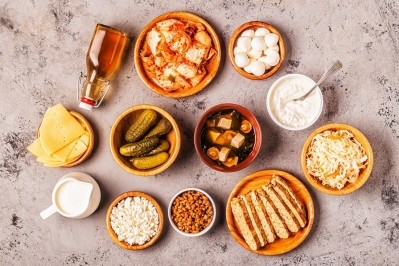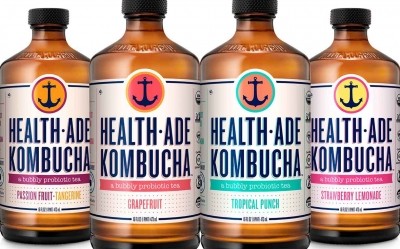IRI: Americans seeking ‘achievable wellness moments’ increasingly open to nutrition for health care

Over the past year, as consumers navigated the threat of the coronavirus and COVID-19, their focus on health and wellness has accelerated so that one in three Americans 17 years and older report doing more now than last year to support their overall health and wellness, according to a recent survey conducted by IRI .
In the point of view report, The Evolution of Self-Care, IRI adds that nearly 70% of Americans do something to support their health and wellness several days a week or more – boosting the average household spend on health care products in 2020 by $55, which represents a $325mn opportunity in 2021, if maintained.
Historically, much of this would have gone to traditional over-the-counter products, including drugs and supplements, but now IRI reports consumers are looking for self-care solutions that include preventive measures. They are expanding beyond these options to embrace an ‘all-encompassing, holistic foundation for wellness,” making more room for foods, beverages, specialty supplements and other products that support preventive health.
Achievable wellness ‘moments’
“The evolution of self-care has been fueled by a wide variety of factors, many of which had their start prior to the pandemic, but have been wildly accelerated because of it,” IRI reports.
These factors include a more “snackable” approach to self-care in which consumers have abandoned their all-or-nothing mindset “to embrace achievable wellness ‘moments,’” according to the report.
This is giving way to a “growing openness to trying new or different ways of supporting wellness that will ultimately impact many conventional health care categories,” IRI adds.
Of the 10 most widespread health and wellness goals identified by IRI, nutrition is a natural fit for weight management, improving or maintaining physical fitness, immunity, and energy. But as the rise of nootropics and adaptogens in conventional and functional food illustrates, nutrition can also support goals to improve sleep and mental clarity, reduce stress and prevent disease. The beauty from within movement also shows that foods and beverages can help consumers with their goals of improving or maintaining physical appearance.
Digestion, immunity are top focus areas
One of the “hottest wellness focuses” that checks multiple of these boxes and which foods and beverages can play a star role is digestive and gut health, according to IRI.
“Plant-based diets, the inclusion of fermented foods and beverages, as well as spices such as ginger and curcumin have all been proven to improve gut health – and are being increasingly included in some consumers’ diets,” IRI notes.
For example, IRI data reveals 52% of consumers who choose plant-based diets do so for health reasons – driving up sales for these products across a wide variety of categories.
“Not only are year-over-year dollar sales for plant-based foods and beverages growing (up 34% in 2020 vs 2019), but the number of people buying is increasing dramatically as well, up 49% in 2019 to 54% in 2020,” IRI reports.
It adds that much of this growth is coming from meat substitutes, sales of which increased 62% in 2020 compared to 15% in 2018, and dairy milk alternatives, such as ready-to-drink coconut milk, which is up 51% in 2020 compared to 6% in 2018 and ready-to-drink almond milk, which is up 32% in 2020 compared to 8% in 2018.
The potential for nutrition to support wellness far exceeds just plant-based, according to IRI, which notes in the report that “consumers largely understand the power of food in supporting their wellness goals – from immunity to weight loss to heart health.”
With this in mind, the report concludes that within diet and exercises it sees “some of the most exciting opportunities for innovation, particularly as it relates to supporting consumers’ immunity goals.”









